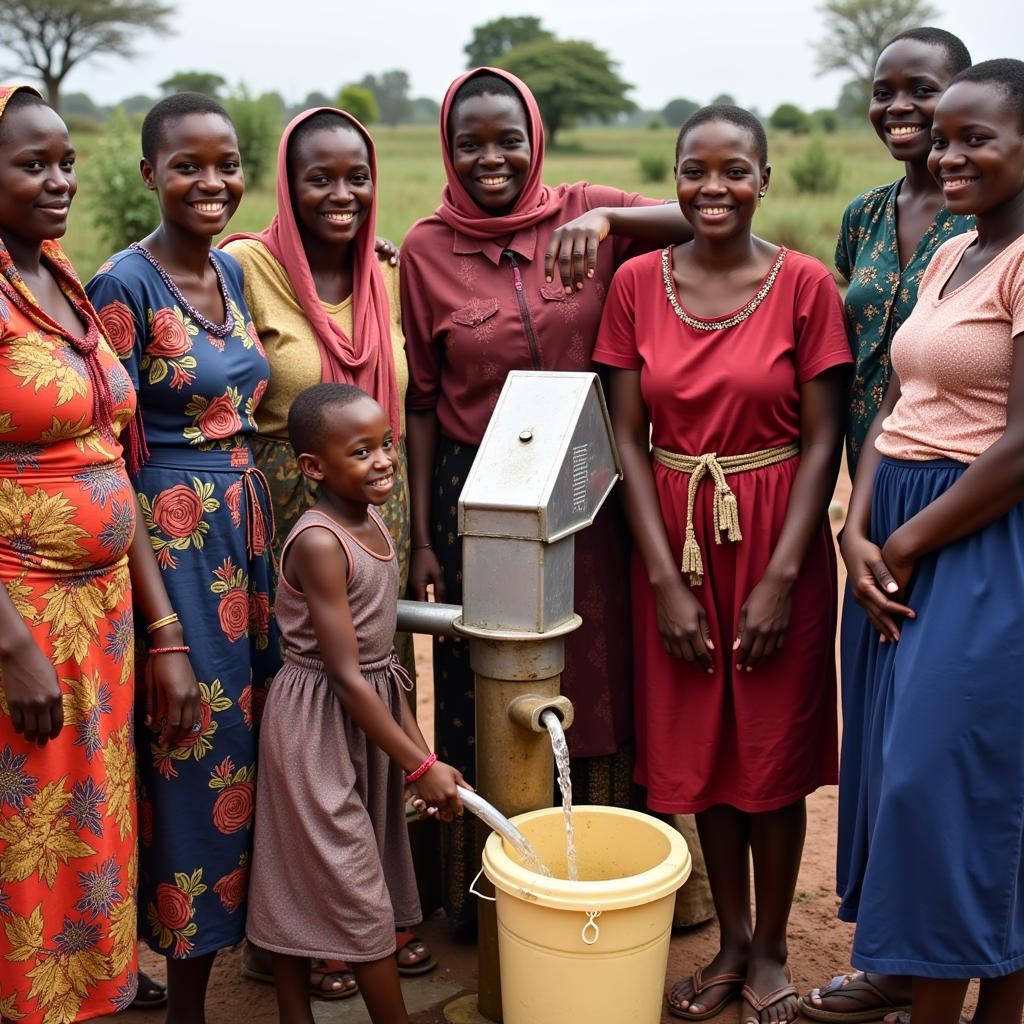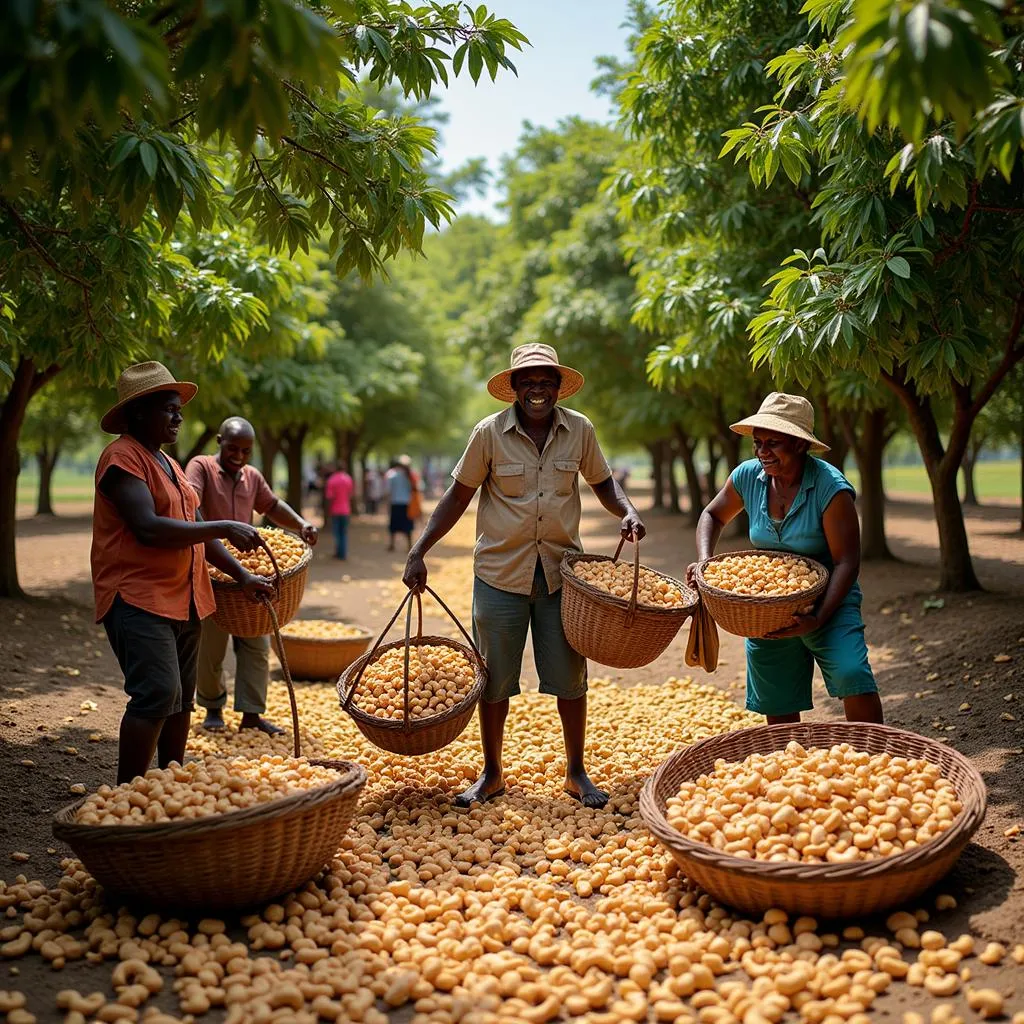African Children With No Water: A Crisis Demanding Action
Access to clean, safe water is a fundamental human right, yet for millions of African children, this basic necessity remains a distant dream. The reality of “African Children With No Water” is a stark and urgent crisis, impacting every aspect of their lives and jeopardizing their future.
The Dire Consequences of Water Scarcity for Children
Without access to safe water, children are exposed to a myriad of life-threatening risks. Waterborne diseases, such as cholera, typhoid, and diarrhoea, thrive in environments where clean water is scarce. These preventable illnesses are a leading cause of death for children under five in Africa, stealing away young lives and devastating families.
The impact of water scarcity extends far beyond physical health. Children, especially girls, often bear the responsibility of collecting water for their families, forcing them to trek long distances to often-polluted sources. This time-consuming task robs them of educational opportunities, perpetuates the cycle of poverty, and limits their potential to thrive.
The Underlying Causes: A Complex Web of Challenges
The water crisis in Africa is a complex issue rooted in a combination of factors, including:
- Climate change: Shifting weather patterns, prolonged droughts, and unpredictable rainfall exacerbate water scarcity, particularly in already arid and semi-arid regions.
- Poverty: Limited access to financial resources hinders the development of sustainable water infrastructure and sanitation facilities, perpetuating the cycle of poverty.
- Lack of investment: Inadequate investment in water management, sanitation services, and hygiene education undermines efforts to provide safe water and improve public health.
- Population growth: Rapid population growth puts increasing pressure on already strained water resources, making it challenging to meet the growing demand.
Turning the Tide: Solutions for a Brighter Future
Addressing this crisis demands a multifaceted approach, focusing on both immediate relief and long-term solutions. Here are some key strategies:
1. Investing in Sustainable Water Infrastructure
Building and maintaining wells, boreholes, rainwater harvesting systems, and piped water networks are crucial steps toward ensuring a reliable water supply.
2. Promoting Sanitation and Hygiene Practices
Educating communities about proper sanitation and hygiene practices, such as handwashing and safe water storage, can significantly reduce the incidence of waterborne diseases.
3. Empowering Communities
Empowering local communities to manage their own water resources through participatory approaches fosters ownership and sustainability.
 African women gather around a newly constructed water well, smiles on their faces.
African women gather around a newly constructed water well, smiles on their faces.
4. Supporting Water-Related Education
Integrating water-related topics into school curricula empowers future generations to understand the importance of water conservation and management.
A Collective Responsibility: Joining Hands to Quench the Thirst
The plight of African children with no water is a global challenge that demands a collective response. Governments, NGOs, communities, and individuals must work together to address this pressing issue. By supporting organizations working on the ground, advocating for policy changes, and raising awareness, we can all contribute to a future where every child in Africa has access to clean, safe water.
FAQs
1. How many African children lack access to safe water?
Millions of children across Africa still lack access to safe water. According to UNICEF, an estimated 418 million people in sub-Saharan Africa live without a basic water service.
2. What are the long-term consequences of water scarcity for children?
Water scarcity can have devastating long-term consequences for children, including chronic illnesses, malnutrition, limited educational opportunities, and perpetuation of the cycle of poverty.
3. How can I help address the water crisis in Africa?
You can make a difference by supporting reputable organizations working in water, sanitation, and hygiene (WASH) programs in Africa, advocating for policy changes, and raising awareness about this critical issue.
4. What are some innovative solutions being implemented to address water scarcity?
Innovative solutions, such as solar-powered water pumps, fog harvesting systems, and low-cost water filters, are being implemented to provide clean water to remote and underserved communities.
5. What is the role of education in addressing the water crisis?
Education plays a crucial role in empowering communities to manage their water resources sustainably, adopt safe hygiene practices, and advocate for improved water and sanitation services.
Need help or more information?
Contact us at:
Phone Number: +255768904061
Email: [email protected]
Or visit us at: Mbarali DC Mawindi, Kangaga, Tanzania.
We have a 24/7 customer support team ready to assist you.
You can also find more information about African family holiday destinations or African airlines booking on our website.


